If your husky wont eat, it could be due to dental issues, illness, or stress. Its important to consult a vet to rule out any health concerns.
| Picky Eating Habits | Huskies are known for having less appetite compared to other dog breeds. |
|---|---|
| Dental Problems | Oral pain from issues like gingivitis can prevent a husky from eating. |
| Stress or Anxiety | Changes in environment or routine can lead to a loss of appetite. |
| Underlying Illness | Conditions such as parasites, infections, or organ problems might be the cause. |
| Recent Vaccinations | Some dogs may experience a brief period of decreased appetite after vaccines. |
| Taste Preference Changes | Huskies might stop eating if they become bored with their current food. |
| Age | Older huskies might eat less due to decreased activity levels or health issues. |
| Meal Frequency | Adult huskies typically need 2 meals per day, while puppies may need 3-4 smaller meals. |
| Exercise Level | Less active huskies might eat less as they require fewer calories. |
| Weather Conditions | Huskies may eat less in hot weather due to their thick double coats. |
Huskies, like any other dog breed, may exhibit a decreased appetite due to a variety of reasons. Health issues, such as digestive problems, infections, or organ dysfunction, can lead to a loss of appetite in huskies.
Similarly, environmental factors like a change in surroundings, disruption of routine, or extreme weather conditions can also impact their eating habits. Additionally, psychological factors including stress, anxiety, or depression can manifest in a husky’s decreased interest in food.
It’s essential to pay attention to these factors when asking yourself, “Why won’t my husky eat?” as addressing these issues is crucial for maintaining your husky’s well-being.
Why won t my husky eat
It’s essential to pay attention to these factors when asking yourself, “Why won’t my husky eat?” as addressing these issues is crucial for maintaining your husky’s well-being.
Understanding the factors that affect your husky’s appetite is critical to their well-being. Dive deeper into their care needs with our comprehensive guide on the proper care and size considerations for a mini husky.

Assessing Your Husky's Health
Why won t my husky eat
It’s crucial to rule out potential health issues through a veterinarian consultation if your husky refuses to eat. Loss of appetite in huskies can be indicative of underlying health problems such as gastrointestinal issues, dental problems, parasitic infections, or more serious conditions.
A thorough examination by a qualified veterinarian can help identify any medical issues that may be impacting your husky’s ability to eat. A professional assessment can also provide insight into the overall well-being of your husky, ensuring that any necessary treatment or dietary adjustments are promptly implemented for their health and happiness.
Therefore, seeking professional veterinary guidance is essential in determining the root cause of your husky’s decreased appetite.
.
Discovering the ideal balance for your husky's health and your home's cleanliness goes hand-in-hand. Unveil the secrets to a tidy living space with a canine companion by exploring "Husky Breeds Tailored for the Neat Freak Pet Owner".
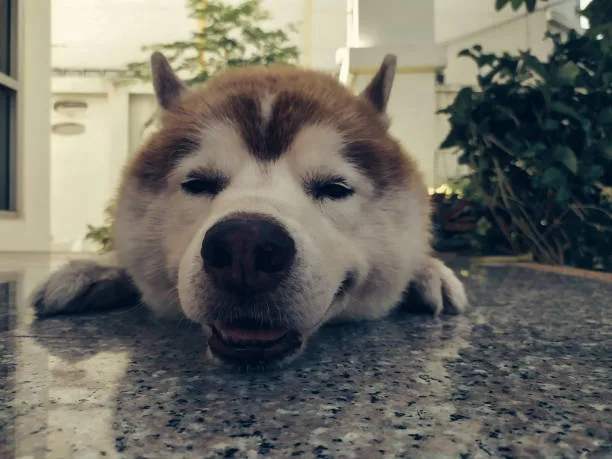
The Role of Dental Problems in Feeding Difficulties
Dental problems can significantly impact a husky’s eating habits, often leading to discomfort and a reluctance to eat. When huskies experience issues such as tooth decay, gum disease, or misaligned teeth, it can make chewing and swallowing food a painful and challenging process.
This discomfort may result in a decreased appetite or even outright refusal to eat. Additionally, huskies are known for their high energy and playful nature, which can sometimes lead to dental injuries or fractures.
These injuries can also contribute to their aversion to consuming food. It’s essential for husky owners to regularly monitor their pet’s dental health and seek veterinary attention at the first sign of any dental discomfort.
Providing appropriate dental care, such as regular teeth cleaning and chew toys, can help prevent these issues and ensure that your husky maintains a healthy and consistent appetite.
Dental problems can significantly impact a husky’s eating habits, often leading to discomfort and a reluctance to eat. When huskies experience issues such as tooth decay, gum disease, or misaligned teeth, it can make chewing and swallowing food a painful and challenging process.
This discomfort may result in a decreased appetite or even outright refusal to eat.
Additionally, huskies are known for their high energy and playful nature, which can sometimes lead to dental injuries or fractures. These injuries can also contribute to their aversion to consuming food.
Why won t my husky eat
It’s essential for husky owners to regularly monitor their pet’s dental health and seek veterinary attention at the first sign of any dental discomfort.
Providing appropriate dental care, such as regular teeth cleaning and chew toys, can help prevent these issues and ensure that your husky maintains a healthy and consistent appetite.
While dental discomfort can lead to behavioral changes and feeding issues in huskies, understanding the impact of other interventions on their behavior is also vital. For an in-depth exploration of how neutering might influence your husky's temperament, read our detailed article "Exploring the Effects of Neutering on Husky Behavior."
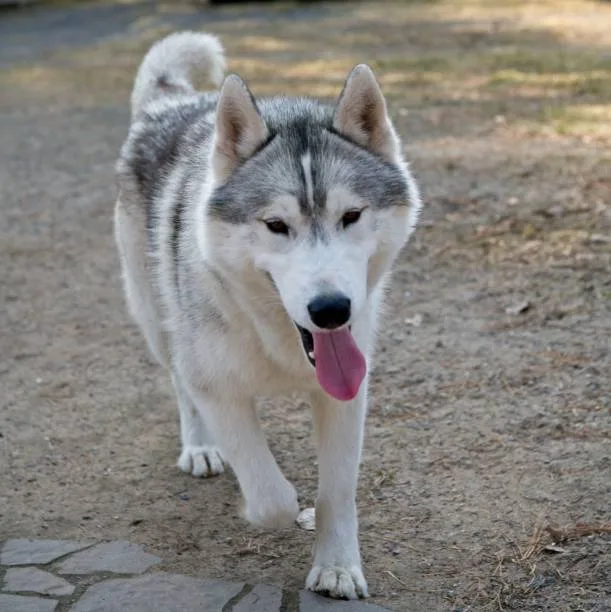
Stress and Anxiety Effects on Husky Eating Habits
Huskies are known for their sensitive nature, and stress or anxiety can significantly impact their eating habits. Just like humans, huskies can experience emotional distress, leading to a loss of appetite.
Change in environment, loud noises, separation anxiety, or even changes in routine can trigger stress in huskies, causing them to refuse food. This can be particularly concerning as a decrease in food intake can lead to various health issues in huskies.
It’s important to create a calm and safe environment for your husky and provide reassurance during stressful situations. Additionally, maintaining a consistent routine and offering comforting items like their favorite toys or bedding can help alleviate some of the stress and anxiety that may be affecting their appetite.
It’s essential to be observant of any changes in your husky’s behavior and surroundings that may be causing stress or anxiety.
By addressing these factors, you can help ensure that your husky maintains a healthy and regular eating pattern.
Understanding your husky's age can be crucial in managing their stress-related feeding issues, as nutritional needs vary with different life stages. Discover the indicators of your husky's age and adapt their care accordingly with our detailed guide on determining a husky's age.
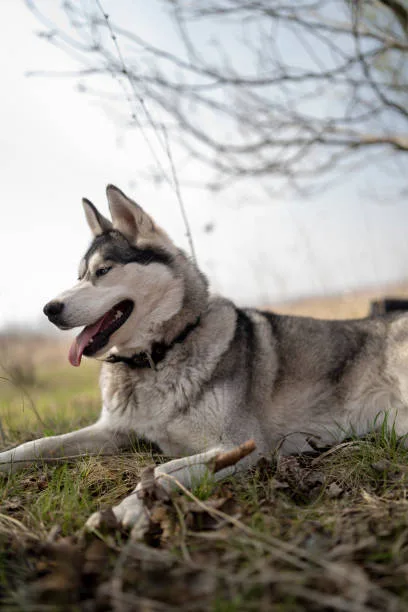
Environmental Impact on Your Husky's Appetite
Changes in the environment can significantly impact a husky’s eating habits. Moving to a new home or alterations in their daily routine can lead to stress and anxiety in huskies, affecting their willingness to eat.
The unfamiliar surroundings and the lack of a settled routine can create a sense of unease, causing a decrease in appetite. Huskies are creatures of habit, so any substantial change in their environment can disrupt their eating patterns.
Establishing a familiar and comforting environment, maintaining a consistent feeding schedule, and providing ample reassurance during transitions can help alleviate the environmental stress that may be contributing to the question of Why won’t my husky eat.
Creating a calm and comforting space within the new environment, such as setting up their bed and feeding area in a consistent location, can also help in easing their stress and encouraging them to resume their regular eating habits.
Patience and understanding are crucial during such adjustments, and giving them the time to adapt at their own pace is essential.
To delve deeper into the intricacies of a husky's behavior and how to nurture their affectionate side, we invite you to explore our detailed guide on understanding and embracing the Siberian husky's temperament. This resource will equip you with the insights to foster a loving and harmonious environment for your canine companion.
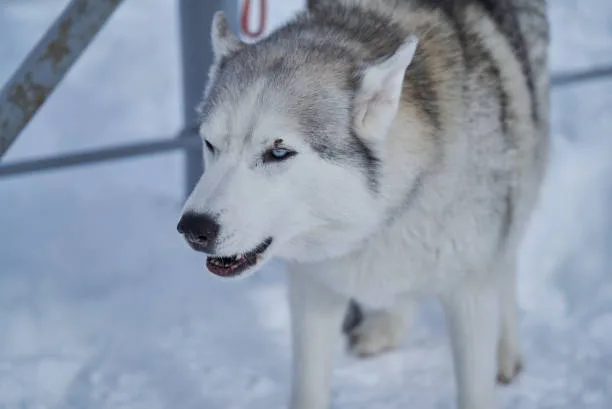
Nutrition and Food Preferences in Huskies
Huskies can be picky eaters, and their disinterest in food may stem from an unappealing or inappropriate diet. It’s essential to understand that these dogs have specific nutritional needs that should be addressed to ensure their overall health and well-being.
When assessing why your husky won’t eat, it’s crucial to consider the quality and variety of food being offered. Huskies thrive on a balanced diet that includes high-quality proteins, healthy fats, and essential vitamins and minerals.
American Kennel Club: Why won t my husky eat
It’s also important to note that huskies may have individual food preferences, so experimenting with different types of food and flavors can be beneficial in finding what appeals to your pet. Additionally, ensuring that the food provided is fresh, properly stored, and served at the right temperature can make a difference in your husky’s interest in eating.
- Quality: Offer high-quality, nutritious foods that meet the specific dietary requirements of huskies.
- Variety: Introduce a variety of food options to determine your husky’s preferences and cater to individual tastes.
- Freshness: Check the freshness and storage of food to ensure it is appealing to your husky and free from spoilage.
.
To explore the full extent of caring for these spirited dogs, including how to tempt their appetites with more enticing meal options, delve into our comprehensive guide. Discover strategies for a healthy and happy husky by reading our detailed article on securing competitive prices for Pomeranian Husky puppies.
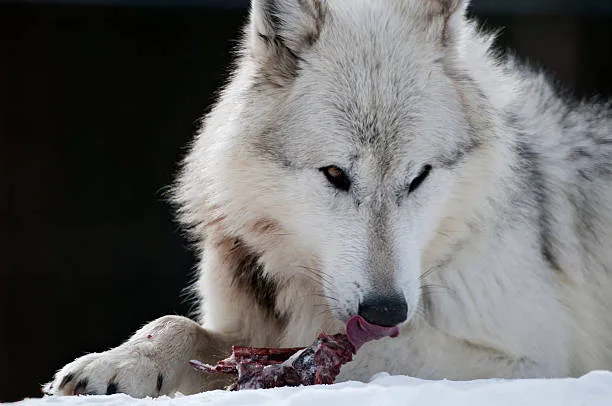
Encouraging Your Husky to Eat
On Quora about: Why won t my husky eat
To encourage your husky to eat, there are several strategies and tips that can be effective in addressing their reluctance to eat. First, establishing a consistent feeding routine can help create a sense of predictability and security for your husky, ultimately encouraging them to eat at regular times.
Additionally, varying the types of food offered to your husky can make mealtime more enticing, so consider incorporating different flavors and textures into their diet. Moreover, if your husky continues to show signs of disinterest in food, you can explore the use of appetite stimulants under the guidance of a veterinarian. These stimulants can help to spark your husky’s appetite and encourage them to eat more readily.
However, it is important to use these under professional supervision to ensure your husky’s safety and well-being. In summary, by establishing routines, varying food types, and considering the use of appetite stimulants, you can effectively encourage your husky to eat and address any reluctance they may have towards mealtime..
Once you've mastered feeding strategies, ensure your husky puppy looks as good as they feel with the ideal collar. Explore our guide on securing the right fit and style by visiting "Selecting the Perfect Collar for Your Husky Pup".
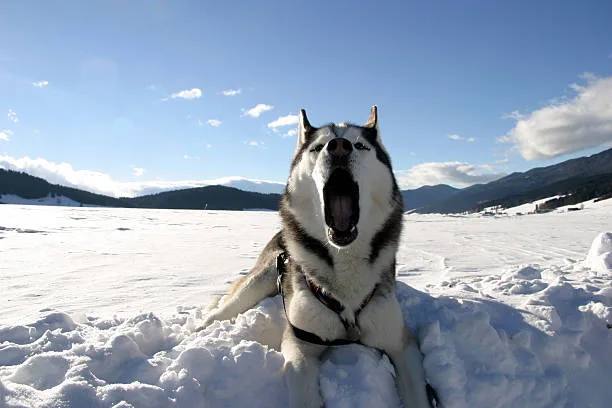
When to Seek Professional Help
If you find yourself asking, “Why won’t my husky eat?” and have exhausted various strategies to encourage your pet to eat without success, it’s crucial to recognize when professional help is necessary. Keep a watchful eye on your husky’s eating habits and take note if the disinterest in food persists for more than a couple of days.
If your husky’s refusal to eat is accompanied by other concerning symptoms such as lethargy, vomiting, diarrhea, or significant weight loss, it’s time to seek consultation from a veterinarian. Additionally, if attempts to adjust the diet, mealtime routine, and environment do not yield positive changes in your husky’s appetite, it’s advisable to reach out to a professional dog nutritionist.
Consulting with experts in the field will ensure that any underlying health or dietary issues are properly addressed, and a tailored plan is developed to help your husky regain a healthy appetite. Remember, seeking professional help promptly is essential for addressing your husky’s eating issues and maintaining their overall well-being.
For further guidance on how to care for your husky without breaking the bank, delve into our detailed article "Affordable Care Tips for Seppala Siberian Huskies." It's your gateway to understanding cost-effective strategies for your furry friend's well-being.
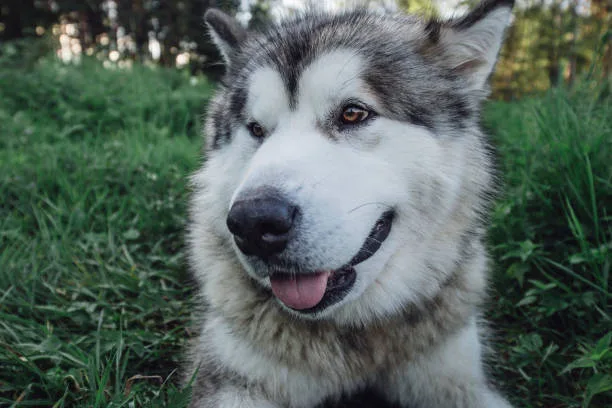
Tailoring Meals to Combat Picky Eating in Huskies
Huskies can sometimes exhibit picky eating habits, making it challenging for owners to ensure they receive the necessary nutrition. One approach to tackle this issue is by modifying their meal schedules and improving the quality of their food.
Introducing a diverse range of high-quality ingredients can help counteract their food preferences and guarantee that they receive essential nutrients, preventing potential nutritional deficiencies. By adjusting their meals and offering a variety of nutritious options, owners can encourage their huskies to develop healthier eating habits, ensuring their overall well-being.
Ensuring that your husky receives the necessary nutrition is key to maintaining their health. By making strategic adjustments to their meals and introducing a varied, high-quality diet, you can address their picky eating tendencies while promoting their overall well-being.
Discover the comprehensive guide to cultivating a thriving lifestyle for your husky, tailor-made to their unique growth stages. Dive deeper into understanding the growth patterns of your husky and how to optimize their health through every phase of their life.
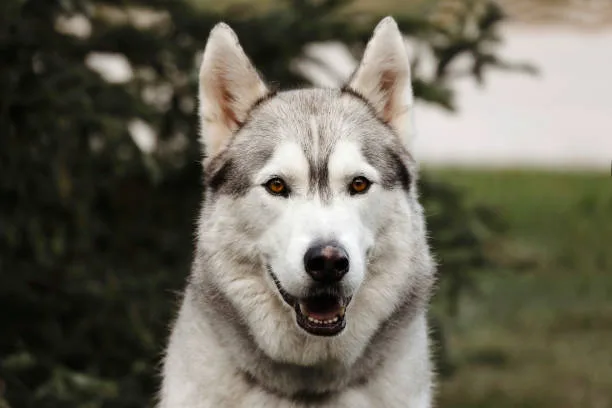
Managing Feeding Issues and Behavioral Concerns
Huskies, like other dogs, can sometimes exhibit feeding issues such as canine anorexia or picky eating. It is essential to address these problems with a proactive approach.
Establishing a consistent mealtime routine can play a crucial role in managing feeding concerns. By having set feeding times, your husky is more likely to develop a predictable eating pattern, which can aid in combating picky eating habits.
Additionally, the use of appetite stimulants may be considered under the guidance of a veterinarian to encourage food intake. Understanding the behavior of dog feeding and being attentive to your husky’s preferences are vital in addressing feeding issues.
This may involve gradually transitioning to a different diet that appeals to their taste buds, ensuring they receive the necessary nutrition for their overall health..
To explore the intricacies of husky dietary needs and how they impact tail health, delve into our comprehensive guide. Discover the differences between Alaskan and Siberian huskies and how their tails can indicate overall well-being in our featured article, "Tailoring Nutrition for Husky Health: Alaskan vs Siberian Tail Insights."
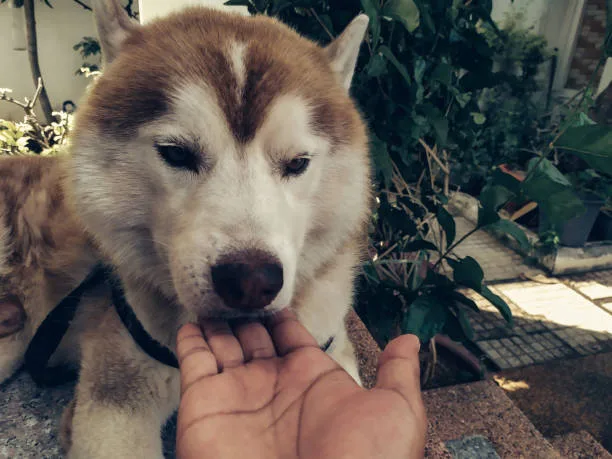
Influences of Lifestyle and Health on Husky's Appetite
Stress, anxiety, and exercise play significant roles in influencing your husky’s appetite. Just like humans, huskies can experience stress and anxiety, which may lead to a decrease in appetite.
Similarly, insufficient exercise can also contribute to appetite loss in huskies. Adequate physical activity not only maintains their overall health but also stimulates their appetite.
Additionally, it’s crucial to monitor your husky for any signs of illness or medical issues that could impact their eating habits. Loss of appetite can often be an early indicator of an underlying health problem, so a proactive approach to husky care is essential to ensure their well-being.
Regular vet check-ups and prompt attention to any changes in your husky’s eating patterns are vital for their health and happiness.
Remember that stress, anxiety, and lack of exercise can impact your husky’s appetite.
Be vigilant for any signs of illness or medical issues that could affect your husky’s eating habits.
To delve deeper into the intricacies of managing your husky's well-being, explore our comprehensive guide on the dynamic nature of the Border Collie Husky mix's temperament. This valuable resource offers further insight into ensuring the emotional and physical health of your loyal companion. Unleash the Greatness: Exploring the Temperament of the Border Collie Husky Mix.
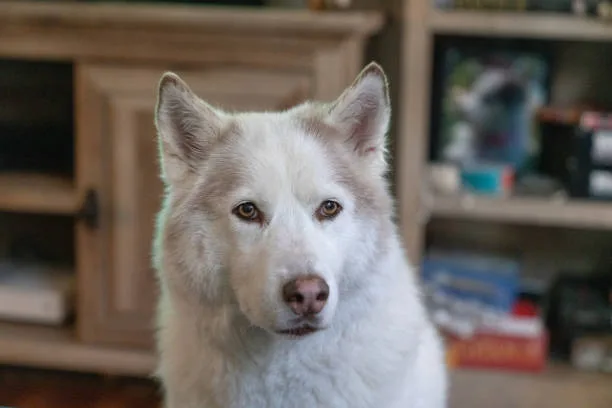
Specific Nutritional Considerations for Huskies
Huskies have specific nutritional requirements at different life stages, and it’s essential to address these needs to ensure their overall well-being. When considering “Why won’t my husky eat,” it’s important to tailor their diet according to their age.
For husky puppies, a diet rich in proteins, fats, and carbohydrates is crucial for their growth and development. As they transition into adulthood, the emphasis shifts towards maintaining lean muscle mass and providing essential nutrients.
Additionally, as huskies age, their dietary requirements may change, necessitating adjustments to their food intake. Maintaining hydration is also key, as huskies are an active breed with high energy levels.
Making sure they have access to clean water at all times is imperative for their health and well-being. Consulting with a vet to determine the appropriate portion sizes and feeding schedule is crucial in preventing issues such as obesity, digestive problems, dental issues, and food allergies.
This tailored approach to nutrition ensures that huskies receive a well-balanced diet that meets their unique needs at every stage of life, promoting their longevity and overall health.
Ultimately, understanding the specific nutritional considerations for huskies at different stages of life is paramount for their long-term health and well-being.
To discover more about keeping our canine companions happy and healthy, delve into an array of entertaining tales where dogs shine on the silver screen. Dive into the 67 Top Dog Movies, as rated by Tomatometer, and enjoy films that celebrate the bond between humans and their four-legged friends.
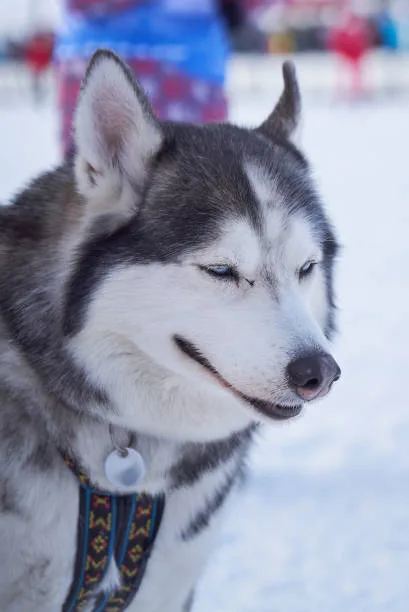
Ensuring a Healthy Diet for Your Husky
Huskies, like all dogs, require a balanced and nutritious diet to thrive. It is crucial to address any appetite loss in your husky by identifying the underlying cause and taking steps to ensure they receive proper nutrition.
A well-balanced diet is essential for maintaining your husky’s overall health and well-being, so it’s important to pay attention to their eating habits and make necessary adjustments to their meals. Additionally, consulting with a vet or a professional dog nutritionist can provide valuable insights into tailoring a diet that meets your husky’s specific needs, promoting their longevity and vitality.
Ensuring a healthy diet for your husky involves understanding and addressing the reasons behind any appetite loss they may be experiencing.
It’s vital to provide them with the appropriate nutrients and food options to support their overall health.

Leave a Reply